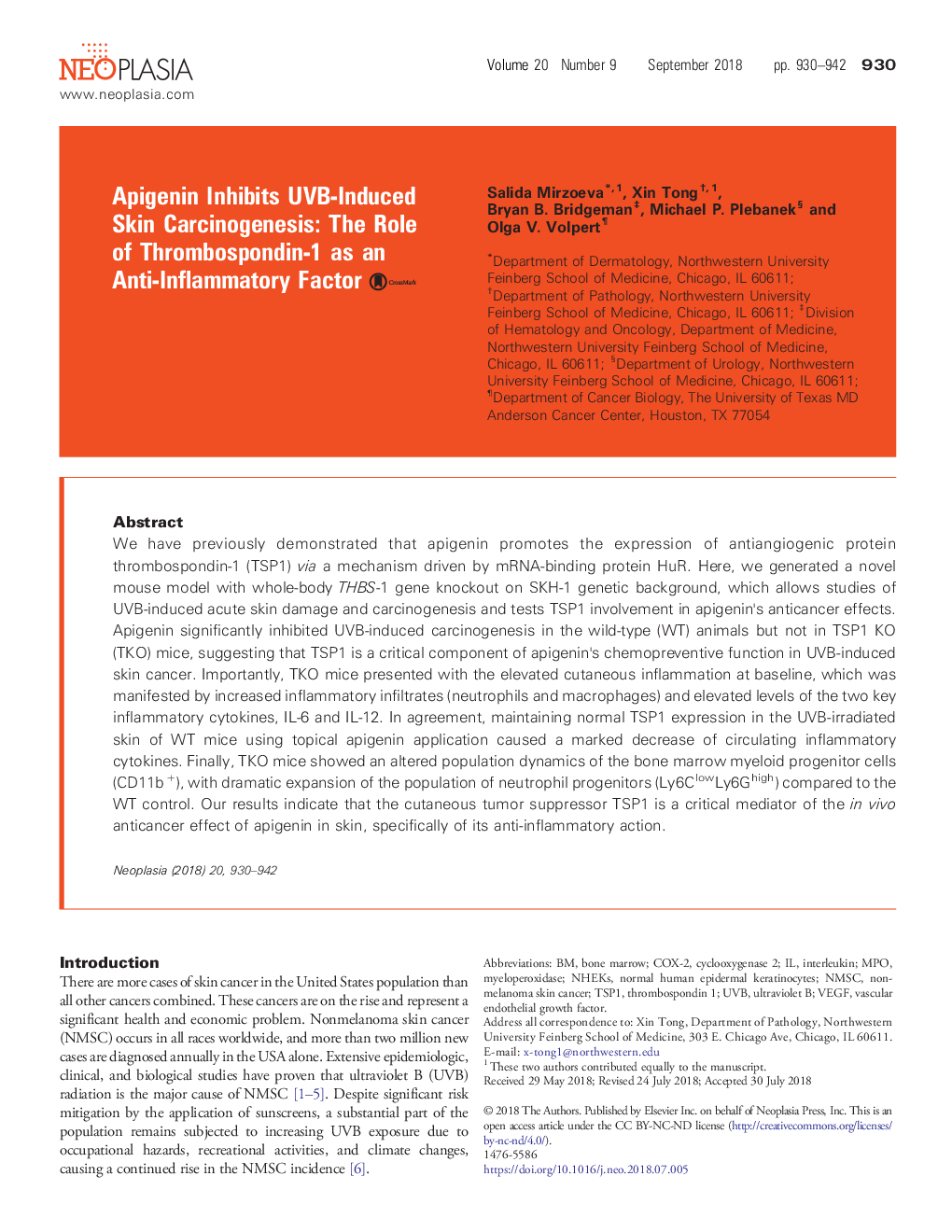| Article ID | Journal | Published Year | Pages | File Type |
|---|---|---|---|---|
| 8456758 | Neoplasia | 2018 | 13 Pages |
Abstract
We have previously demonstrated that apigenin promotes the expression of antiangiogenic protein thrombospondin-1 (TSP1) via a mechanism driven by mRNA-binding protein HuR. Here, we generated a novel mouse model with whole-body THBS-1 gene knockout on SKH-1 genetic background, which allows studies of UVB-induced acute skin damage and carcinogenesis and tests TSP1 involvement in apigenin's anticancer effects. Apigenin significantly inhibited UVB-induced carcinogenesis in the wild-type (WT) animals but not in TSP1 KO (TKO) mice, suggesting that TSP1 is a critical component of apigenin's chemopreventive function in UVB-induced skin cancer. Importantly, TKO mice presented with the elevated cutaneous inflammation at baseline, which was manifested by increased inflammatory infiltrates (neutrophils and macrophages) and elevated levels of the two key inflammatory cytokines, IL-6 and IL-12. In agreement, maintaining normal TSP1 expression in the UVB-irradiated skin of WT mice using topical apigenin application caused a marked decrease of circulating inflammatory cytokines. Finally, TKO mice showed an altered population dynamics of the bone marrow myeloid progenitor cells (CD11b+), with dramatic expansion of the population of neutrophil progenitors (Ly6ClowLy6Ghigh) compared to the WT control. Our results indicate that the cutaneous tumor suppressor TSP1 is a critical mediator of the in vivo anticancer effect of apigenin in skin, specifically of its anti-inflammatory action.
Keywords
Related Topics
Life Sciences
Biochemistry, Genetics and Molecular Biology
Cancer Research
Authors
Salida Mirzoeva, Xin Tong, Bryan B. Bridgeman, Michael P. Plebanek, Olga V. Volpert,
